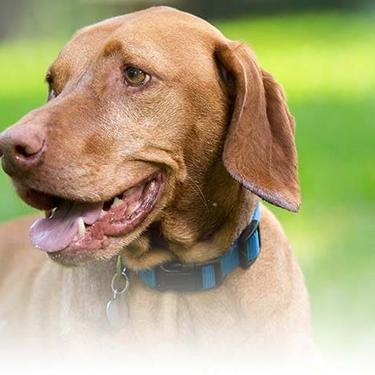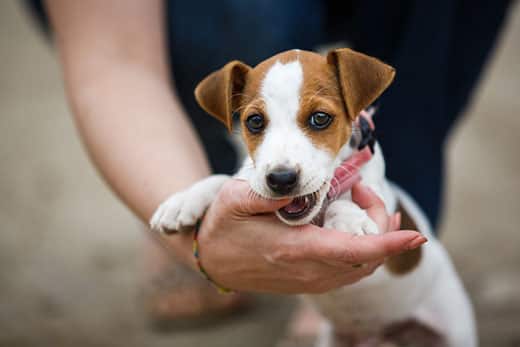
-
Find the right food for your pet
Take this quiz to see which food may be the best for your furry friend.
Find the right food for your pet
Take this quiz to see which food may be the best for your furry friend.
Featured products
 Adult 7+ Perfect Digestion Chicken, Whole Oats & Brown Rice Recipe Dog Food
Adult 7+ Perfect Digestion Chicken, Whole Oats & Brown Rice Recipe Dog FoodScience Diet's breakthrough nutrition supports ultimate digestive well-being & healthy microbiome for dogs age 7+
Shop Now Adult Healthy Cuisine Roasted Chicken, Carrots & Spinach Stew Dog Food
Adult Healthy Cuisine Roasted Chicken, Carrots & Spinach Stew Dog FoodDelicious roasted chicken paired with tender vegetables in a succulent stew
Shop Now Small & Mini Savory Stew with Chicken & Vegetables Dog Food
Small & Mini Savory Stew with Chicken & Vegetables Dog FoodA delicious complement to the nutrition of Science Diet Small & Mini 7+ dog food
Shop NowFeatured products
 Adult 7+ Senior Vitality Chicken & Vegetable Stew Cat Food
Adult 7+ Senior Vitality Chicken & Vegetable Stew Cat FoodImproves Everyday Ability to Get Up & Go
Shop Now Adult Savory Entrée Can Variety Pack Cat Food
Adult Savory Entrée Can Variety Pack Cat FoodPrecisely balanced nutrition with the delicious taste of savory minced chicken to help fuel the energy needs of cats during the prime of their life
Shop Now Adult 7+ Tender Tuna Dinner Cat Food
Adult 7+ Tender Tuna Dinner Cat FoodWith delicious chunks in a decadent gravy
Shop Now -
Dog
- Dog Tips & Articles
-
Health Category
- Weight
- Food & Environmental Sensitivities
- Urinary
- Digestive
- Joint
- Kidney
-
Life Stage
- Puppy Nutrition
- Adult Nutrition
- Senior Nutrition
Cat
- Cat Tips & Articles
-
Health Category
- Weight
- Skin & Food Sensitivities
- Urinary
- Digestive
- Kidney
-
Life Stage
- Kitten Nutrition
- Adult Nutrition
Featured articles
 Do Dogs and Cats have Belly Buttons?
Do Dogs and Cats have Belly Buttons?Learn whether cats & dogs have belly buttons like humans, what the function is, and if there are any health concerns associated with it.
Read More Does My Pet Hate Me?
Does My Pet Hate Me?Learn tips for bonding with your pet if you've ever thought, 'My dog doesn't like me, or 'Why do I have a standoffish cat?'
Read More Why Are Dogs and Cats So Cute?
Why Are Dogs and Cats So Cute?If waggy puppy dog tails and furry kitten yawns make you swoon, you're not alone. Why are cats so cute? And, dogs too! Let's find out!
Read More -


You knew having a puppy would be a big responsibility — and you were ready. You read up on housebreaking, worked out your commands for leash etiquette and puppy-proofed your home. And you were thrilled to discover that your new furry bundle of joy was the sweetest, most mild-mannered puppy you'd ever met. So when you first felt your dog nipping, you were truly caught off guard.
If you're worried your puppy parenting is to blame, you'll be relieved to know that puppy play biting is very common, even among the most well-behaved pups. But why do dogs nip? And how can you curb the habit while your dog is still young? Let's explore the science behind nipping and ways you can train your puppy to stop this behavior.
Why Do Puppies Nip?
Dog nipping, or puppy play biting, generally involves a quick, sharp bite without the intent to cause harm. It's more like mouthing — though the teeth are present and you may feel a pinch, it's not an aggressive behavior; rather, it's due to your pup's lack of self-control or understanding.
Much like babies, puppies use their mouths to learn about the world. That, plus the inevitable need to teethe, leads puppies toward behaviors such as mouthing or jawing on objects, or perhaps getting too frisky during playtime and biting. Puppies often don't know their own strength or just how sharp their teeth truly are.


Tasty Tips
How to Stop Your Puppy's Nipping
When puppies are young, they learn "bite inhibition" from their mothers and fellow puppies. As the American Kennel Club explains, "If puppies bite while nursing, [their mother] will nip them or stand up and walk away, taking the breakfast buffet with her." And as puppies play together, "if a puppy ... bites too hard, the sibling will jump up and yelp." In these ways, puppies learn there are consequences for biting.
As a dog parent, you too can teach bite inhibition to your puppy. Here's what the ASPCA recommends:
- Let your dog mouth your hand during playtime until they start to bear down.
- Once they bite, let out a loud, high yelp and let your hand go limp. (This imitates the behavior of puppies who are bitten too hard during play, and it should startle your puppy enough for them to stop biting.)
- Once your puppy stops biting, positively reinforce the change in behavior with praise. Continue this up to three times in a given 15- or 20-minute time frame.
If, over time, you find this strategy is unsuccessful, consider reaching out to your veterinarian or pet supply store to get other training tips, or to find a professional dog trainer who can help you set up your pup for a bite-free future.
Another tactic is to redirect their nipping behavior and give them a good chew toy. Whenever they are feeling particularly rambunctious, remove the object of their desire (your hand) from the equation and replace it with something that is more suitable to bite down on. Over time, they will learn that biting their chew toy is acceptable, while hands are not.
Even the calmest and best behaved puppy can be prone to nipping — it's just their nature. The good news is that with the right approach, practice and positive reinforcement, you can teach your puppy not to nip and prepare your four-legged friend for a lifetime of good socialization and great behavior.


Erin Ollila believes in the power of words and how a message can inform—and even transform—its intended audience. Her writing can be found all over the internet and in print, and includes interviews, ghostwriting, blog posts, and creative nonfiction. Erin is a geek for SEO and all things social media. She graduated from Fairfield University with an M.F.A. in Creative Writing. Reach out to her on Twitter @ReinventingErin or learn more about her at http://erinollila.com.
Related products

A delicious complement to the nutrition of Science Diet Small & Mini 7+ dog food

Delicious roasted chicken paired with tender vegetables in a succulent stew

Delicious braised beef paired with tender vegetables in a succulent stew

Science Diet's breakthrough nutrition supports ultimate digestive well-being & healthy microbiome for dogs age 7+
Related articles

Hill's Science Diet Small & Toy Breed dog foods are designed to meet the nutritional needs for your small dog at every life stage. Learn more here.

Your dog's coat and skin are a big part of your dog's overall health. Ensure you keep your dog's coat healthy, by following these simple tips.

Learn about choosing the right food for your mature or older dog, ensuring he receives the correct balance of nutrition.

Large and giant breed puppies have different nutritional needs than other dogs. Learn how to provide the special care they need to grow up big and strong.

Put your dog on a diet without them knowing
Our low calorie formula helps you control your dog's weight. It's packed with high-quality protein for building lean muscles, and made with purposeful ingredients for a flavorful, nutritious meal. Clinically proven antioxidants, Vitamin C+E, help promote a healthy immune system.
Put your dog on a diet without them knowing
Our low calorie formula helps you control your dog's weight. It's packed with high-quality protein for building lean muscles, and made with purposeful ingredients for a flavorful, nutritious meal. Clinically proven antioxidants, Vitamin C+E, help promote a healthy immune system.


